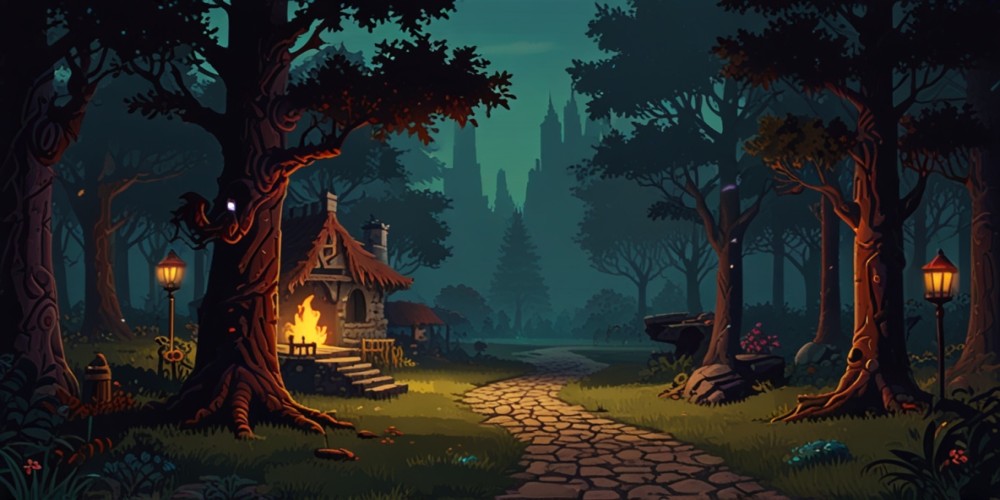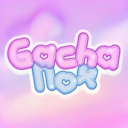Evolution of Retro RPGs: From Final Fantasy to Chrono Trigger
Jul-05-2024

The story of role-playing games (RPGs) is like an epic quest in itself, brimming with twists, turns, and legendary heroes. If you've ever found yourself lost in the pixelated dungeons of an 8-bit world, you know the kind of magic I'm talking about. But how did we get from the humble beginnings of RPGs to the masterpieces we now cherish as classics? Let's embark on a journey down our shared past, exploring how games like Final Fantasy and Chrono Trigger not only defined a genre but also left a lasting legacy that continues to inspire gamers today.
The Birth of a Legend: Final Fantasy
In the late '80s, the gaming landscape was a wild frontier, a digital Wild West where developers were still figuring out what could be done with a handful of pixels and a lot of imagination. Enter Final Fantasy, a game that would not just carve out a niche but unleash a torrent of possibilities for RPGs. Created by Hironobu Sakaguchi and his team at Square, Final Fantasy was born from the hope that this game would save the company from financial ruin—a 'final' attempt at success, if you will.
And boy, did it succeed. What made Final Fantasy so special wasn’t just its turn-based combat or its engaging story—it was the way it made players feel like they were part of something larger than life. You weren’t just controlling a character; you were the hero in a tale of the eternal struggle between righteousness and malevolence, with the destiny of the universe at stake. It was like stepping into a storybook, but better, because this time you got to decide how the story unfolded.
Expanding Horizons: Final Fantasy II & III
Leveraging the achievements of the inaugural installment, Final Fantasy II and Final Fantasy III took things up a notch. These sequels weren’t just about adding more monsters or tougher bosses—they were about innovation. Final Fantasy II introduced a more complex narrative, with characters that had distinct personalities and backstories. This was groundbreaking for the time, as it made players care more deeply about the characters they were controlling.
Final Fantasy III introduced the Job System, giving players the freedom to switch classes and customize their characters in a way that had never been done before. It was like being handed the keys to a whole new realm of possibilities, and for many gamers, it was a game-changer. Suddenly, RPGs weren’t just about grinding and leveling up—they were about strategy, planning, and, most importantly, creativity.
The Golden Age of RPGs: Final Fantasy IV to VI
When Final Fantasy IV came along, it marked the beginning of what many consider the 'Golden Age' of RPGs. This was a period when Square could do no wrong, releasing hit after hit, each more ambitious than the last. Final Fantasy IV introduced the Active Time Battle system, a blend of turn-based and real-time combat that added a new layer of tension to battles. You couldn’t just sit back and think about your next move—you had to act, and quickly.
Final Fantasy V took the Job System introduced in III and refined it to perfection, while Final Fantasy VI brought storytelling in RPGs to a whole new level. With its ensemble a diverse ensemble of characters, each possessing distinct talents and compelling narratives that unfold throughout the story, Final Fantasy VI was a masterclass in narrative design. It was like watching a movie unfold, but with the added thrill of knowing that you were the one driving the action.
A New Challenger Appears: Chrono Trigger
While the Final Fantasy series was busy setting the bar for RPGs, another title was waiting in the wings, ready to take the genre in a bold new direction. Chrono Trigger, released in 1995, was the brainchild of a 'dream team' of developers, including Final Fantasy creator Hironobu Sakaguchi, Dragon Quest creator Yuji Horii, and Dragon Ball artist Akira Toriyama. With talent like that behind the scenes, it’s no wonder Chrono Trigger turned out to be something truly special.
What set Chrono Trigger apart from other RPGs was its innovative approach to storytelling. Instead of a linear narrative, Chrono Trigger introduced the concept of time travel, allowing players to jump between different eras and see how their actions in the past affected the future. It was like being given the power to rewrite history, and the game’s multiple endings meant that every decision you made had real consequences.
Gameplay Innovations and Timeless Appeal
Chrono Trigger wasn’t just about clever storytelling—it also revolutionized gameplay. The Active Time Battle system made a return, but with a twist: characters could combine their abilities to perform powerful combo attacks, adding a new layer of strategy to battles. This system encouraged players to experiment and find the best combinations, making every encounter feel fresh and exciting.
Another standout feature of Chrono Trigger was its lack of random encounters, a staple of RPGs at the time. Instead, enemies were visible on the screen, allowing players to choose whether to engage in battle or avoid it altogether. This was a small change, but it made the game feel more fluid and immersive, like you were exploring a living, breathing world rather than just moving from one battle to the next.
The Legacy Lives On
The impact of Final Fantasy and Chrono Trigger on the RPG genre can’t be overstated. These games set the standard for what RPGs could be, and their influence is still felt in the games we play today. Whether it’s the complex narratives, the innovative gameplay mechanics, or the unforgettable characters, these games have made a lasting impression on the gaming landscape.
But perhaps what’s most remarkable is the way these games continue to resonate with players, decades after their release. Whether you’re a seasoned gamer who played these titles when they first came out, or a newcomer discovering them for the first time, there’s something timeless about these adventures. They remind us of a time when games were simpler, but no less profound—a time when a handful of pixels could transport us to a world of endless possibilities.
Conclusion: A Legacy That Endures
As we look back on the evolution of retro RPGs, it’s clear that games like Final Fantasy and Chrono Trigger did more than just entertain—they inspired. They showed us what games could be, and in doing so, they paved the way for future generations of developers to push the boundaries of what’s possible. So the next time you fire up your old console or emulator and dive into one of these classics, take a moment to appreciate the journey that brought us here. Because in the end, it’s not just about the destination—it’s about the adventure along the way.







